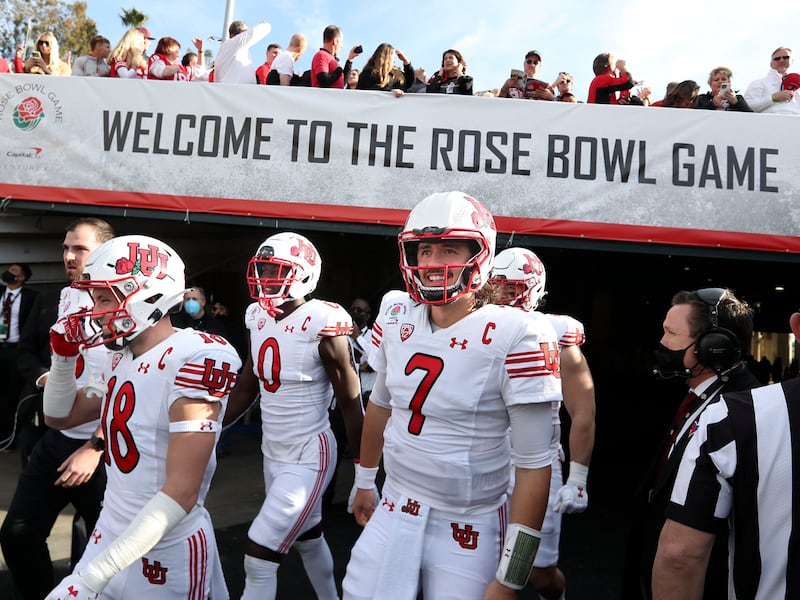For decades, Utah’s football program existed almost anonymously from a national standpoint, off the radar, competing in the Skyline Conference, the Western Athletic Conference and the Mountain West Conference.
Then by 2010, the Utes earned their golden ticket, receiving an invitation to join the Pac-12.
It took a while, but last fall, Utah won its first Pac-12 championship and played in the Rose Bowl for the first time.
Now, suddenly, since USC and UCLA announced they are leaving the Pac-12 for the Big Ten in 2024, many have wondered what will become of Utah.
Despite proving itself on the field, will the Utes be relegated again?
In a recent edition of Stewart Mandel’s mailbag in The Athletic, a question dealing with this topic was posed from an exasperated reader, a Ute fan, in Salt Lake City.
“For the past three decades, Utah has worked to move up the college football ladder — and succeeded,” wrote Raymond H. “Now, once again, it seems the college football powers that be have moved the goalposts on the Utes again. With season ticket prices going up every couple of years, can you give me a reason why I should keep buying into this charade?”
Mandel’s response?
“I can’t imagine how frustrating it is today to be a fan of Utah, or the two dozen-ish schools just like them. The Utes accomplished the rare feat of getting promoted from second-class status in the Mountain West by pulling off not one but two undefeated seasons, then spent a decade working their way up the Pac-12, finally winning their first championship last season — and then get told that two programs they’ve far outclassed on the field recently are still much more valuable, sorry. You’re second class again,” Mandel wrote.
“But to answer your question, there is one pending development that, in theory, should keep Utah fans and others like them engaged: An expanded CFP. It’s even more insane today than it was six months ago that the Pac-12 of all conferences opted not to approve a 12-team proposal that would have, A) Gone into effect two years earlier, and B) all but guaranteed access to the league’s champion, even with a watered-down lineup.
“In a 12-team Playoff with six automatic bids, Utah can earn its way in and, even if unlikely to win the whole thing, gain notoriety and prove on-field it can still compete with schools from better-resourced conferences. Last year’s team that lost three games but was as hot as anybody by the time it got to the Rose Bowl and could have very well won a couple of Playoff games. Which would then reap dividends in recruiting, exposure and so on.”
Mandel added that SEC commissioner Greg Sankey is upset that his CFP proposal was rejected by the Pac-12 and the Atlantic Coast Conference, which would have benefited from it even more than the SEC.
“(Sankey) suggested he might not support there being any spots reserved for conference champions in the next iteration. I think that’s likely a negotiating ploy and won’t actually come to pass. But I’m also guessing there won’t be six berths this time around, not after the Big 12, Pac-12 and AAC all were weakened,” Mandel wrote.
“If you’re a fan of a school outside the SEC and Big Ten, you should be rooting for the largest possible field with the most possible auto-bids. Because just like the NCAA Tournament, you don’t need to make more money than the other guy to beat him in a single-elimination format.”



